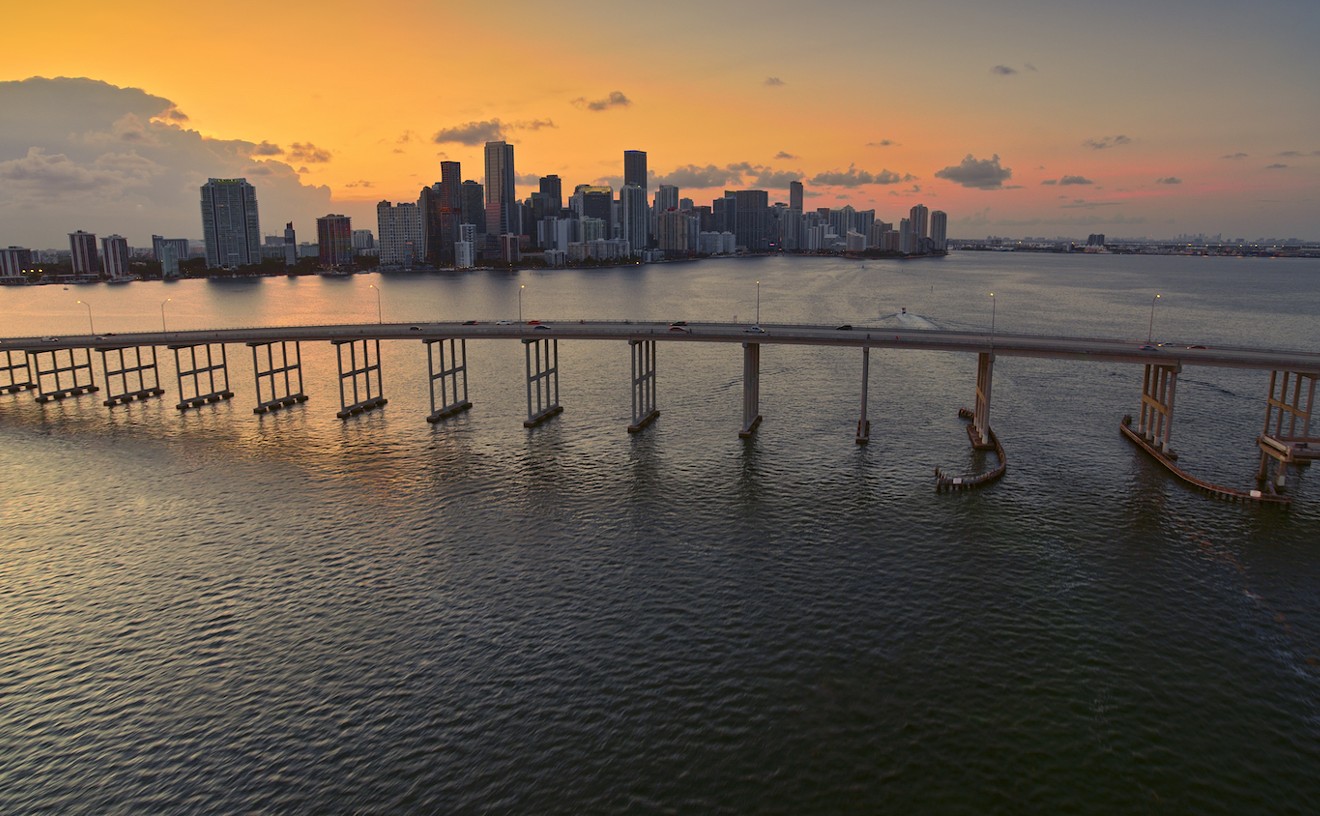Though the chance that Veolia will take over North Miami Beach's utilities isn't huge (the company is behind two other firms in the bidding), critics say they're astounded the city negotiated with Veolia at all given the firm's recent history.
"Citizens should have a say in where their tax dollars go," says Blake Williams, a spokesperson for For Our Future, a progressive activist group that plans to protest the privatization move outside North Miami Beach City Hall at 1 p.m. tomorrow. "The fact is we shouldn’t give a monopoly on our public health and clean drinking water over to private companies with little oversight or accountability."
Veolia has been accused of doing extreme damage to Pittsburgh's water. The public water system there was relatively clean. The city's own poorly run utility company might have been a few hundred million dollars in debt, but people could at least drink the water without fear of brain damage. But in 2012, the city realized its aging water mains were in need of a serious overhaul, which would cost millions. So instead of paying that money itself, the city contracted out a private French firm, Veolia, to cut costs and streamline services.
Things went well for a while, until 2014, when the Veolia-controlled water company, to cut costs, switched one of the anti-corrosive agents it was pumping into the water. Someone didn't properly test whether that new chemical agent was safe, and it ended up
City officials have placed the blame squarely on Veolia, which oversaw the Pittsburgh Water and Sewer Authority (PWSA) when the chemical switch happened. But Veolia denies it had anything to do with the crisis, telling Mother Jones it "did not and would not prioritize cost savings ahead of effective corrosion control methods or water quality."
In 2015, Veolia was hired to study the water quality in Flint, Michigan — the site of the most famous water crisis in the nation. Flint's water is demonstrably unsafe to drink; children and adults in low-income neighborhoods say they've been unwittingly tricked into drinking poisoned water. But two years ago, Veolia authored a study claiming the city's water was safe. The study helped convince public officials that everything was fine, thus subjecting innocent people to the permanent effects of lead poisoning.
The State of Michigan has since sued Veolia for negligence and fraud. (Veolia has denied the claims and promised to fight "these unwarranted allegations of wrongdoing.")
To add insult to injury, water services didn't even get cheaper under Veolia: Customers in Pittsburgh complained about rate hikes and erratic billing schedules and even filed a class-action lawsuit against Veolia and the company doing the PWSA's accounting.
But now the City of North Miami Beach is considering handing its water utility — which also services Aventura, Sunny Isles Beach, and Miami Gardens — to Veolia.
This Monday, the North Miami Beach City Commission will vote on whether the city should hand its aging water system over to one of three private firms. In April 2016, a third-party consultant labeled the city's water utility "inefficient" and said the city's water services needed to get cheaper, safer, better staffed, better managed, and upgraded with new infrastructure.
Commissioner Anthony DeFillipo, one of the project's main backers, did not respond to a phone call and an email from New Times yesterday.
Rather than pay to handle all of those issues itself, the city sent out a request asking private companies to bid to take over the entire water system. After accepting bids from multiple firms, the city narrowed the pitches to three: the major engineering firms CH2M, U.S. Water/Wade Trim LLC, and Veolia North America. This Monday, commissioners will vote on whether to begin negotiating with the firms.
As it stands, CH2M has the lowest bid, followed by U.S. Water. If those two bidders don't work out, Veolia is next on the list. According to its request for bids, the city says the water utility's employees would be transferred to the winning company. Current employees would have to reapply for jobs.
The leading bidder, CH2M, has had its own share of bad press recently: City documents show that CH2M handles water services in nearby Pembroke Pines. That city, however, was recently fined by the state for having elevated levels of a chemical called trihalomethane (TTHM), which can cause kidney and/or liver damage (or cancer) if ingested for long periods of time. The city stresses that its water supply is currently safe, but state regulators claim the problem has gone unfixed for months.
CH2M is also in charge of rehabbing the Miami-Dade South District Wastewater Treatment Plant. But one CH2M contractor working on that $139 million project, Ralph Garcia-Toledo, was criticized for working as the finance chairman for Miami-Dade Mayor Carlos Gimenez's recent reelection campaign.
“The optics are terrible,” Katy Sorenson, the former Miami-Dade commissioner who also ran the nonprofit Good Government Initiative, said of that particular debacle in an interview with the Miami Herald last year.
Protesters say that outside North Miami Beach City Hall tomorrow, they'll raise the problems that private contractors have had nationally while running public water systems. Miami-Dade Democratic Party Chair Juan Cuba and a former employee at the city's water plant are expected to speak out against the plan. At least one independent study from the nonprofit Food and Water Watch noted that water rates tend to triple after private, for-profit companies take over city supplies.
This all begs an obvious question: Given the relatively poor track records of many of the private utilities involved, why
"What DeFillipo and others are pushing is simply a bad deal," Williams says. "Just ask the dozens of communities around the country that went down this same misguided path and saw their citizens pay higher water bills while their water quality suffered."












